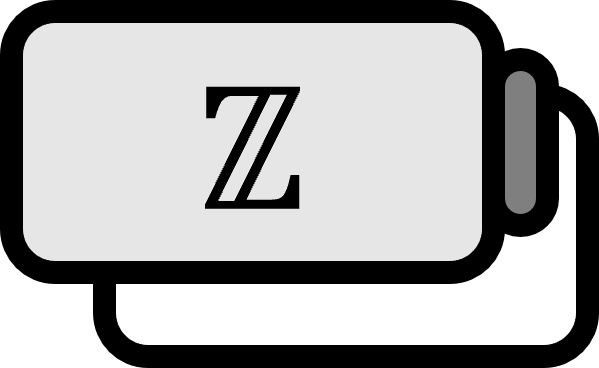Gaussian Ring Norm
Theorem 1
Consider the function $N : \mathbb{Z}[i] \to \mathbb{Z}$ for the Gaussian Ring $\mathbb{Z}[i]$.
- [1]: If defined as $N(x + iy) := x^2 + y^2$, $N$ becomes the multiplicative norm of $\mathbb{Z}[i]$.
- [2]: $\mathbb{Z}[i]$ is a Euclidean domain.
- [3]: The only unit of $\mathbb{Z}[i]$ is $1,-1,i,-i$.
Description
Gaussian integers can be much more comfortably studied with the help of [abstract algebra](../../categories/abstract algebra). By proving [2] with the norm $N$ defined in an integral domain, it is almost equivalent to proving the fundamental theorem of arithmetic extended to Gaussian primes because ED is UFD. This is similar to explaining the fundamental theorem of arithmetic algebraically as $\mathbb{Z}$ is UFD.
Proof
[1]
Definition of the multiplicative norm:
- (i): $N (\alpha) = 0 \iff \alpha = 0$
- (ii): $N ( \alpha \beta ) = N ( \alpha ) N ( \beta )$
To demonstrate that $N$ is a multiplicative norm and that $\mathbb{Z}[i]$ actually becomes an ID, it is not initially necessary to have a theorem for defining the norm, so it is unnecessary first to prove that it is an ID. Let’s consider $a,b,c,d \in \mathbb{Z}$ as $\alpha := a + ib$ and $\beta := c + id$.
Part (i). $N (\alpha) = 0 \iff \alpha = 0$
$$ N(\alpha) = a^2 + b^2 = 0 \iff a = b = 0 \iff \alpha = a + ib = 0 $$
Part (ii). $N ( \alpha \beta ) = N ( \alpha ) N ( \beta )$
Since the product of Gaussian integers is calculated as $( a + ib )( c + id) = (ac - bd) + i (ad + bc)$, $$ \begin{align*} N ( \alpha \beta ) =& N(ac - bd + i (ad + bc)) \\ =& a^2 c^2 + a^2 d^2 + b^2 c^2 + b^2 d^2 \\ =& (a^2 + c^2) (b^2 + d^2) \\ =& N ( \alpha ) N ( \beta ) \end{align*} $$
Part 3.$Z[i]$ is ID
Assuming that $\alpha$ and $\beta$ are not $0 \in \mathbb{Z}[i]$ while being $\alpha \beta = 0$ according to Parts (i) and (ii), $$ N(\alpha) N(\beta) = N(\alpha \beta ) = N(0) = 0 $$ Since $N(\alpha)$ and $N(\beta)$ are elements of the integral domain $\mathbb{Z}$, to satisfy $N(\alpha) N(\beta) = 0$, either $N(\alpha)$ or $N(\beta) $ must be $0$, which contradicts the hypothesis, thus $Z[i]$ is also an integral domain.
■
[2]
- (i): For all $a,b \in D (b \ne 0 )$, there exist $q$ and $r$ such that $a = bq + r$ is satisfied. In this case, either $r = 0$ or $\nu (r) < \nu (b)$ must be true.
- (ii): For all $a,b \in D (b \ne 0 )$, $\nu ( a ) \le \nu ( ab )$
Assume $\nu := N$ and show that $N$ is the Euclidean norm of $\mathbb{Z}[i]$. Let’s assume $\beta \ne 0$.
Part (i). $\exists \sigma, \rho : \alpha = \beta \sigma + \rho$
Let’s say $r, s \in \mathbb{Q}$ about some $\displaystyle {{ \alpha } \over { \beta }} = r + is$. Let’s set $\sigma$ and $\rho$ as close to integer $r, s$ as possible. $$ \sigma := q_{1} + i q_{2} \\ \rho := \alpha - \beta \sigma $$
- Case 1. $\rho = 0$
Since $\alpha = \beta \sigma$, there’s nothing more to show. Found $\displaystyle \sigma = {{ \alpha } \over { \beta }} = q_{1} + i q_{2}$ and $\rho = 0$. - Case 2. $N ( \rho ) < N ( \beta )$
According to the definition of $q_{1}$ and $q_{2}$, $$ | r - q_{1} | \le {{1} \over {2}} \\ | s - q_{2} | \le {{1} \over {2}} $$ this leads to $$ \begin{align*} N \left( {{ \alpha } \over { \beta }} - \sigma \right) =& N \left[ (r + is) - (q_{1} + i q_{2}) \right] \\ =& N \left[ (r - q_{1} ) + i ( s - q_{2}) \right] \\ \le & \left( {{1} \over {2}} \right)^2 + \left( {{1} \over {2}} \right)^2 \\ =& {{1} \over {2}} \end{align*} $$ Accordingly, $$ \begin{align*} N ( \rho ) =& N(\alpha - \beta \sigma ) \\ =& N \left( \beta \left( {{ \alpha } \over { \beta }} - \sigma \right) \right) \\ =& N (\beta) N \left( {{ \alpha } \over { \beta }} - \sigma \right) \\ \le & N(\beta) {{1} \over {2}} \\ \le & N (\beta) \end{align*} $$ Thus, we can ensure that $\rho$ and $\sigma$ exist to satisfy either $\rho = 0$ or $N(\rho) \le N (\beta)$.
Part (ii). $N ( \alpha ) \ge N ( \alpha ) N ( \beta )$
Since $\beta \ne 0 \implies N ( \beta ) \ge 1$, $$ \begin{align*} N ( \alpha ) \le & N ( \alpha) \cdot 1 \\ \le & N(\alpha) N(\beta) \\ =& N ( \alpha \beta ) \end{align*} $$
■
[3]
According to the properties of a multiplicative norm, if $u \in \mathbb{Z}[i]$ is a unit, then $| N ( u ) | = 1$. Therefore, by contraposition, if $| N(u) | = 1$ is not true, then $u$ is not a unit. The only case that satisfies $N(u) = x^2 + y^2 = 1$ for $u := x + iy$ is when it is $u \in \left\{ 1, -1, i, -i \right\}$.
■
Silverman. (2012). A Friendly Introduction to Number Theory (4th Edition): p272. ↩︎
